2016 年天津商业大学基础英语考研真题
Vocabulary & Structure
I
among the four choices.
1. conceivable
(每小题 1 分,共 20 分)Directions: Choose the right one
A. reasonable
B. imaginable
C. considerable
D. credible
2. sepulchral
A. overwhelmed
B. pleasant
C. picturesque
D. grave-like
3. burnished
A. polished
B. published
C. burned
D. perished
4. cataract
A. cataclysm
B. waterfall
C. disaster
D. flood
5. vestige
A. trace
B. vest
C. invest
D. privilege
6. contagious
A. sensitive
B. easy-going
C. affective
D. contemptuous
7. fortify
A. multiply by forty
B. strengthen
C. a stronghold
D. fortress
8. demolish
A. decrease
B. erect
C. tear down
D. set aside
9. primordial
A. prime
B. introductory
C. primitive
D. element
10. respite
A. postponement
B. respect
C. in spite of
D. despite
�
11. Mountain
life produces
a
strong,
tough
and ________
farmer.
A.tricky
B.
genius
C.industriousD.
gentle
12.A patient
terrible pain,
who
is
dying
no
of
longer
which can
be
alleviatedC. replaced
A.
diminishedB.
incurable
cancer
of
satisfactorily
D.
abolished
the
throat
________.
is
in
13. Does brain power_______ as we get older? Scientists now have some surprising
answers.
A.collapse
deduceD.
descend
decay
B.
C.
14.
Recently a number of cases have been reported of young children ____a violent
act previously seen on television.
A.
modifying
B. stimulating
C.
accelerating
D.
duplicating
15. We are going to the cinema tonight, why don’t you come along ___________?
A. either
D. in addition
C. as well
B. also
16. With the help of a metal detector, they discovered that wreckage laid __________
over a 2000-square-feet area, often buried beneath sand seaweed.
A. scattered
D. distributed
C. dispersed
B. separated
_______ before they depart the day after tomorrow, we should have a wonderful
17.
dinner party.
A. Had they arrived
C. Would they arrive
Studies
show
happiness
work
and
18.
of
sense
friendship
A. as for
B. Were they to arrive
D. Have they arrived
the
that
cannot
satisfaction.
be
things
bought, _____
that
contribute
a
good
most
family
to
a
life ,
B. in view of
C. in case of
D. such as
19. Successful businessmen today are likely to be young , aggressive ,and
well-educated ._______, they are willing to take risks to achieve success.
A. After all
B. All in all
D. Above all
C. Over all
20. “I would like to have a look at your cameras before I decide on one..” “We
have several models_____ .”
A. for you to choose from
D. for you to choose
C. for the choice of yours
B. for your choice
�
Cloze (每空 1 分,共 20 分)
II
Directions: Choose a correct one among the four choices to fill in each numbered
blank in the following passage.
The press in America is particularly important because, ___1___than in any other
country, it is recognized as having a responsible role to___2___in relation to one
aspect of the process of government. The press ____3___ is an American invention,
and it began to be important____4____the form of a meeting between President and
____5___ in which the President____6_____questions. Press conferences take place
all___7___the world now, but the presidential press conference is an institution
___8___gives us a key___9___the special role America___10___to the press and to the
newspapermen. The British parliament has its question time ___11___each day Members
of Parliament ___12___ questions to ministers in charge of ___13___departments, and
some European parliaments have something of ___14___ kind. There is no possibility
___15___such a device in the United States Congress because heads of executive
departments are not members of ___16___ . Thus the executive has no political
platform ___17___which to explain its___18___and give information. President
Franklin Roosevelt showed the advantages of using the press for such ___19___when
he called regular meetings of newspapermen ___20___which he invited questions.
1
2
3
4
5
6
7
8
9
A .less
B. more
C. rather
D. greater
A .perform
B. conduct
C. do
D. make
A. session
B. meet
C. meeting
D. conference
A.
at
B. with
C. in
D. for
A. ministers
B. officials
C. opponents
D. journalists
A. replied
B. replied to
C. answered to
D. returned
A. over
B. round
C. up
D. through
A. where
B. what
C. which
D.
it
A.
for
B.
at
C.
towards
D.
to
10
A. resigns
B. assigns
C. desidns
D. assists
11
A. when
B.
on
C.
for
D.
in
�
12
A. answer
B. respond
C. address
D.
serve
13
A. executive
B.
management
C. execution
D. direction
14
A. same
B.
a same
C. the same
D. the similar
15
A. for
B.
to
C.
about
D.
of
16
A. it
B.
them
C.
importance
D.
significance
17
A. with
B.
through
C.
for
D.
in
18
A. views
B.
points
C.
stands
D.
locations
19
A. sake
B. save
C. intentions
D. purposes
20
A. in
B.
on
C.
at
D.
for
III. Error Correction (每小题 3 分,共 15 分)
Directions:Inthispassagetherearealtogether5mistakesinthefivenumbered
andunderlinedsentences.Trytodetectthemistakesandwriteoutyourcorrected
answers on the Answer Sheet.
提示: 没有拼写和标点符号错误。
Sample test: He commenced helping the poor. →commenced to help
To be elected president in the Provincetown Playhouse at our International
Conference in New York this past June was a special thrill, and it's a privilege
to be succeeding such accomplished O'Neillians as Laurie Porter, Brenda Murphy, and
Steve Bloom, just to name the most recent. (1) I feel lucky to have a turn at leading
this organization with its collegial, erudite, and distinguishing group of scholars,
teachers, and dedicated enthusiasts of the life and works of Eugene O'Neill. And
congratulations to Jeff Kennedy, the tireless creative force behind the New York
conference and our new vice president. (2) Just as O'Neill himself was usually
convinced that his most recent play was his greatest, sometimes correctly, I can't
help to think that our most recent gathering this June set a new high mark even
among all the terrific international conferences that the Society has sponsored
over the past few decades.
By day I am the associate dean of Arts and Sciences at Tennessee Tech University
in Cookeville, and though I enjoy budget spreadsheets and curriculum oversight as
much as the next guy, (3) the excuse to linger in Seattle for MLA, or run off to
�
San Francisco in May for our annual Society meeting at ALA, give me a special sense
of purpose and adventure that, frankly, administrative life sometimes lacks. Though
handicapped by a reasonably happy childhood, I came to appreciate O'Neill in graduate
school while studying his plays at Boston University, a couple of blocks down Bay
State Road from where he died in 1953. A coincidence, probably, but I should also
note that my wife Rita attended Connecticut College in New London, a primary locus
of O'Neill studies (and just maybe the site of our next big gathering--stay tuned);
my mother-in-law was actually a young girl in Provincetown during those special years
when O'Neill was a fledgling playwright and family man there. In January, I look
forward to returning to Seattle, my own home town and O'Neill's home for a few months
in 1936 when he learned he'd won the Nobel Prize, where I'll be moderating the O'Neill
Society session at the 2012 MLA convention. I suppose being an O'Neillian requires
a certain belief in the convergent power of fate.
(4) Our future looks bright, with so much continuing interest in O'Neill and
his circle, so I'm sure that like many of you I'm having some difficulty imagining
life after Diane Schinnerer steps down this winter after twelve peerless years
as
our
secretary-treasurer. Fortunately we have Beth Wynstra stepping into that role,
and I'm sure she'll be channeling Diane when necessary while putting her own fresh
stamp on the operation.
The other major transition, of course, is the succession of the editorship of
TheEugeneO'NeillReviewfrom Zander Brietzke to William Davies King, (5) with the
journal moving from its original home at Suffolk University to the Penn State
University Press, there it will be published twice-yearly and available online
through JSTOR and Project MUSE. Zander, succeeding founding editor Fred Wilkins,
cultivated many important new voices and directions in O'Neill scholarship. It will
be exciting to see where Dave and the supportive folks at PSUP take the journal from
here. So it's a good time to be an O'Neillian, and I hope to continue seeing many
of you at Society-sponsored events, and to encourage new O'Neill scholars and fans
to join us.
�
IV. Read the following passage and fulfill the tasks according to the requirements.
(共 95 分)
The Good Short Life
by Dudley Clendinen
(From the New York Times)
1. I have wonderful friends. In this last year, one took me to Istanbul. One
gave me a box of handcrafted chocolates. Fifteen of them held two rousing,
pre-posthumous wakes for me. Several wrote large checks. Two sent me a boxed set
of all the Bach sacred cantatas. And one, from Texas, put a hand on my thinning
shoulder, and appeared to study the ground where we were standing. He had flown in
to see me.
2. “We need to go buy you a pistol, don’t we?” he asked quietly. He meant
to shoot myself with.
3. “Yes, Sweet Thing,” I said, with a smile. “We do.”
4. I loved him for that.
5. I love them all. I am acutely lucky in my family and friends, and in my daughter,
my work, and my life. But I have amyotrophic lateral sclerosis, or ALS, more kindly
known as Lou Gehrig’s disease, for the great Yankee hitter and first baseman who
was told he had it in 1939, accepted the verdict with such famous grace, and died
less than two years later. He was almost thirty-eight.
6. I sometimes call it Lou, in his honor, and because the familiar feels less
threatening. But it is not a kind disease. The nerves and muscles pulse and twitch,
and progressively, they die. From the outside, it looks like the ripple of piano
keys in the muscles under my skin. From the inside, it feels like anxious butterflies,
trying to get out. It starts in the hands and feet and works its way up and in, or
it begins in the muscles of the mouth and throat and chest and abdomen, and works
its way down and out. The second way is called bulbar, and that’s the way it is
with me. We don’t live as long, because it affects our ability to breathe early
on, and it just gets worse.
7. At the moment, for sixty-six, I look pretty good. I’ve lost twenty pounds.
My face is thinner. I even get some “Hey, there, Big Boy,” looks, which I like.
I think of it as my cosmetic phase. But it’s hard to smile, and chew. I’m short
of breath. I choke a lot. I sound like a wheezy, lisping drunk. For a recovering
�
alcoholic, it’s really annoying.
8. There is no meaningful treatment. No cure. There is one medication, Rilutek,
which might make a few months’ difference. It retails for about $14,000 a year.
That doesn’t seem worthwhile to me. If I let this run the whole course, with all
the human, medical, technological, and loving support I will start to need just
months from now, it will leave me, in five or eight or twelve or more years, a
conscious but motionless, mute, withered, incontinent mummy of my former self.
Maintained by feeding and waste tubes, breathing and suctioning machines.
9. No, thank you. I hate being a drag. I don’t think I’ll stick around for
the back half of Lou.
10. I think it’s important to say that. We obsess in this country about how
to eat and dress and drink, about finding a job and a mate. About having sex and
children. About how to live. But we don’t talk about how to die. We act as if facing
death weren’t one of life’s greatest, most absorbing thrills and challenges. Believe
me, it is. This is not dull. But we have to be able to see doctors and machines,
medical and insurance systems, family and friends and religions as informative
—not governing —in order to be free.
11. And that’s the point. This is not about one particular disease or even about
Death. It’s about Life, when you know there’s not much left. That is the weird
blessing of Lou. There is no escape, and nothing much to do. It’s liberating.
12. I began to slur and mumble in May 2010. When the neurologist gave me the
diagnosis that November, he shook my hand with a cracked smile and released me to
the chill, empty gray parking lot below.
13. It was twilight. He had confirmed what I had suspected through six months
of tests by other specialists looking for other explanations. But suspicion and
certainty are two different things. Standing there, it suddenly hit me that I was
going to die. I’m not prepared for this, I thought. I don’t know whether to stand
here, get in the car, sit in it, or drive. To where? Why? The pall lasted about five
minutes, and then I remembered that I did have a plan. I had a dinner scheduled in
Washington that night with an old friend, a scholar and author who was feeling
depressed. We’d been talking about him a lot. Fair enough. Tonight, I’d up the
ante. We’d talk about Lou.
14. The next morning, I realized I did have a way of life. For twenty-two years,
I have been going to therapists and twelve-step meetings. They helped me deal with
�
being alcoholic and gay. They taught me how to be sober and sane. They taught me
that I could be myself, but that life wasn’t just about me. They taught me how to
be a father. And perhaps most important, they taught me that I can do anything, one
day at a time.
15. Including this.
16. I am, in fact, prepared. This is not as hard for me as it is for others.
Not nearly as hard as it is for Whitney, my thirty-year-old daughter, and for my
family and friends. I know. I have experience.
17. I was close to my old cousin, Florence, who was terminally ill. She wanted
to die, not wait. I was legally responsible for two aunts, Bessie and Carolyn, and
for Mother, all of whom would have died of natural causes years earlier if not for
medical technology, well-meaning systems, and loving, caring hands.
18.
I spent hundreds of days at Mother’s side, holding her hand, trying to tell
her funny stories. She was being bathed and diapered and dressed and fed, and for
the last several years, she looked at me, her only son, as she might have at a passing
cloud.
19.
I don’t want that experience for Whitney—nor for anyone who loves me.
Lingering would be a colossal waste of love and money.
20. If I choose to have the tracheotomy that I will need in the next several
months to avoid choking and perhaps dying of aspiration pneumonia, the respirator
and the staff and support system necessary to maintain me will easily cost half a
million dollars a year. Whose half a million, I don’t know.
21. I’d rather die. I respect the wishes of people who want to live as long
as they can. But I would like the same respect for those of us who decide—rationally
—not to. I’ve done my homework. I have a plan. If I get pneumonia, I’ll let it
snuff me out. If not, there are those other ways. I just have to act while my hands
still work: the gun, narcotics, sharp blades, a plastic bag, a fast car,
over-the-counter drugs, oleander tea (the polite southern way), carbon monoxide,
even helium. That would give me a really funny voice at the end.
22. I have found the way. Not a gun. A way that’s quiet and calm.
23. Knowing that comforts me. I don’t worry about fatty foods anymore. I don’
t worry about having enough money to grow old. I’m not going to grow old.
24. I’m having a wonderful time.
25. I have a bright, beautiful, talented daughter who lives close by, the gift
�
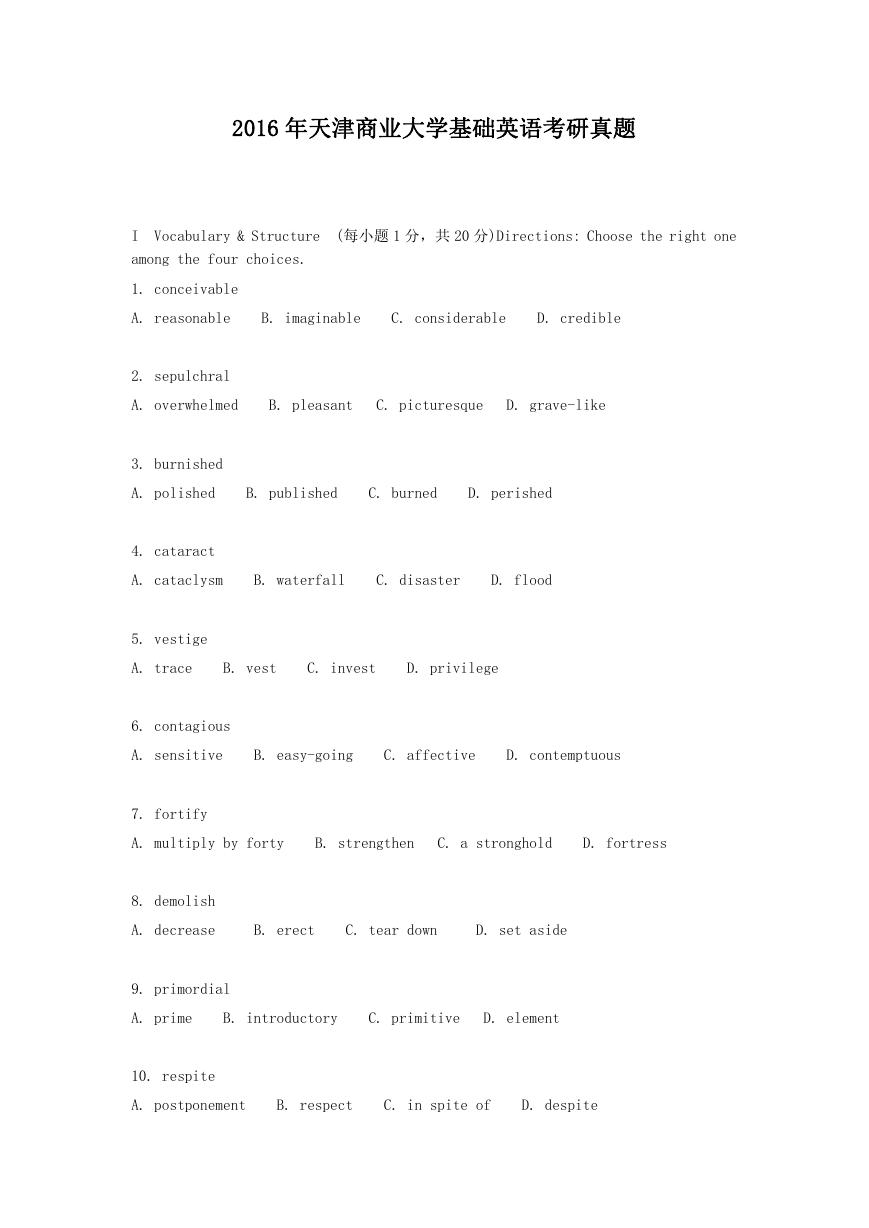
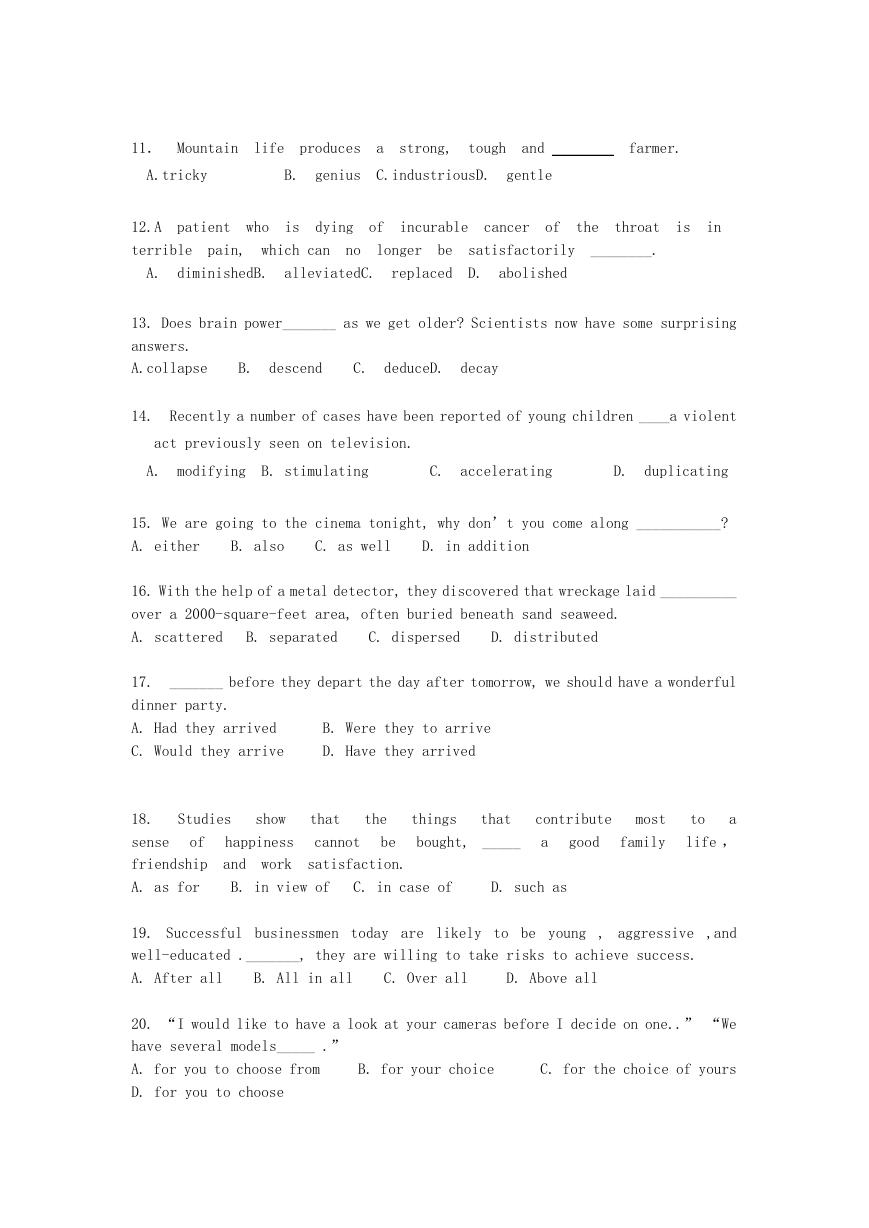
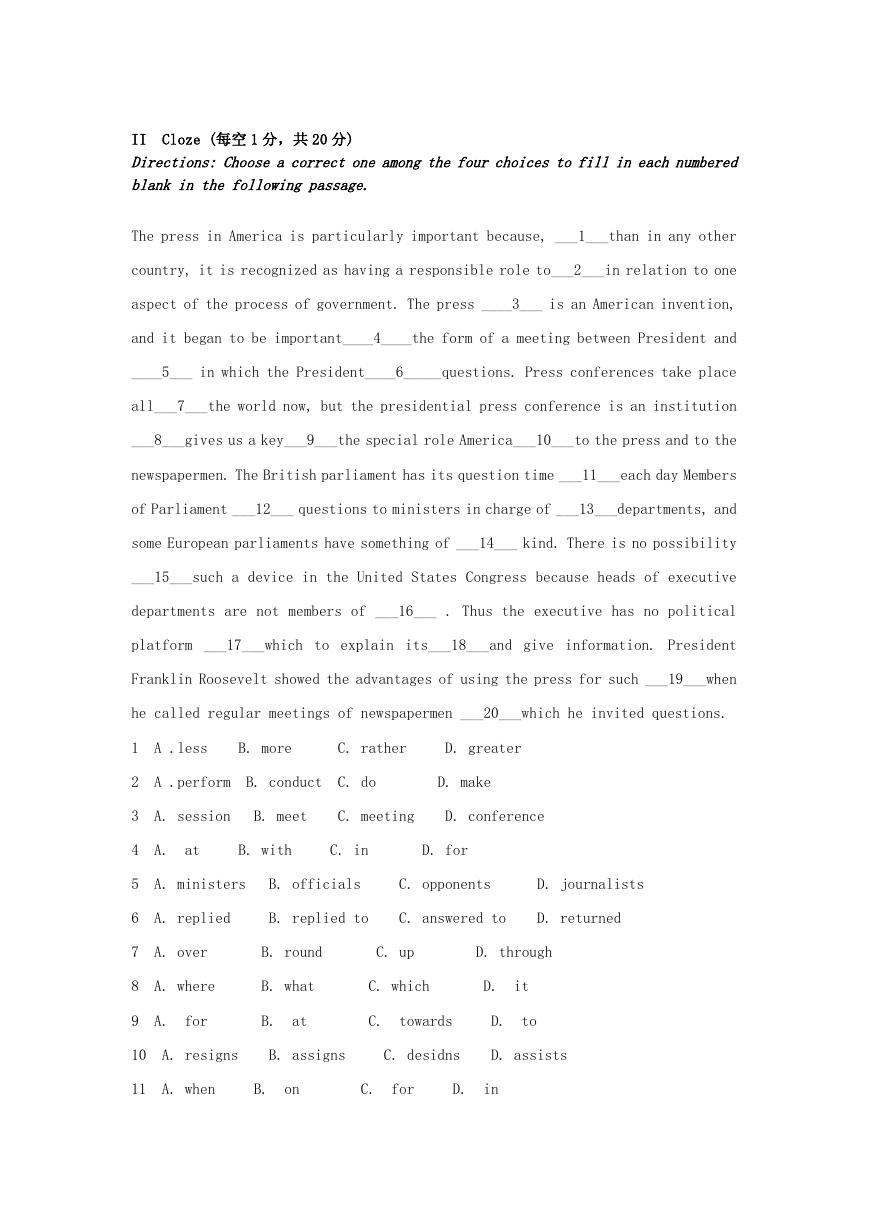

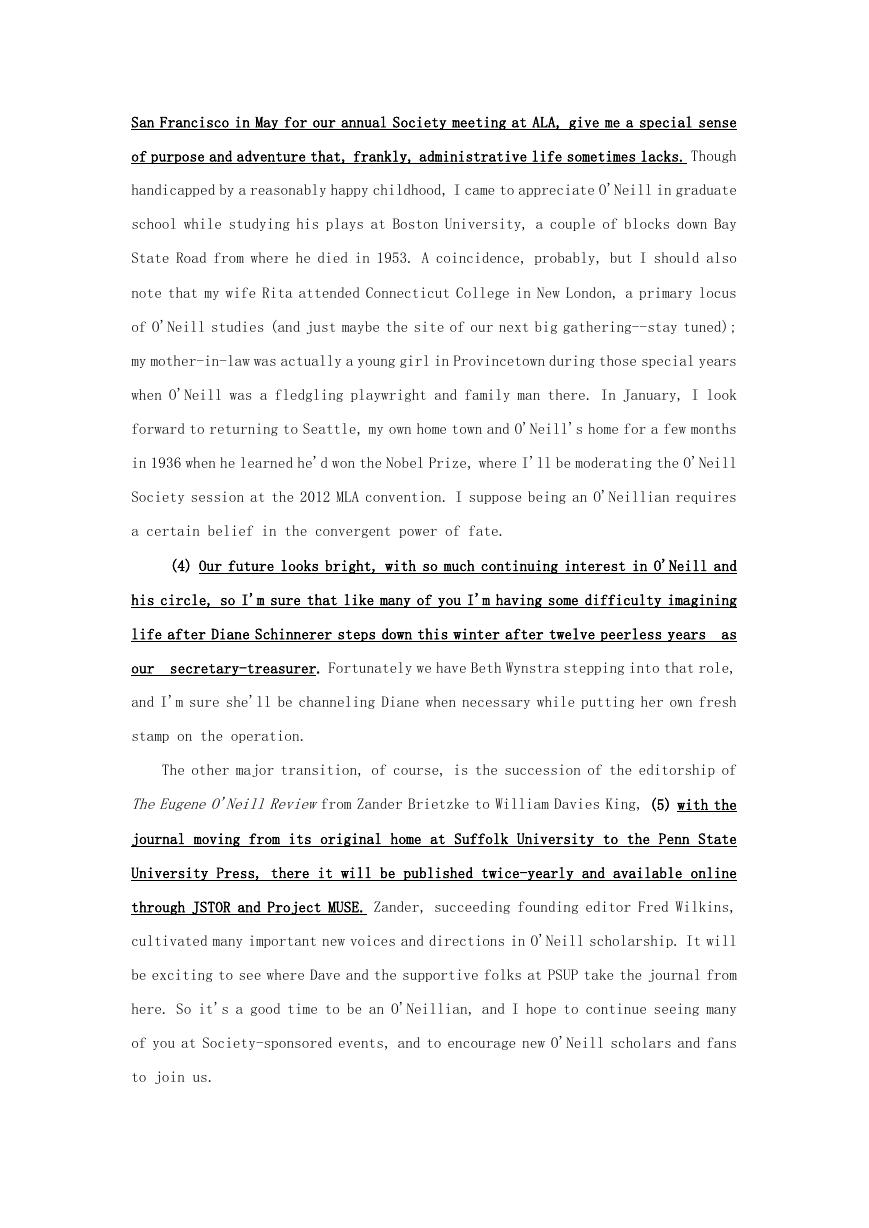
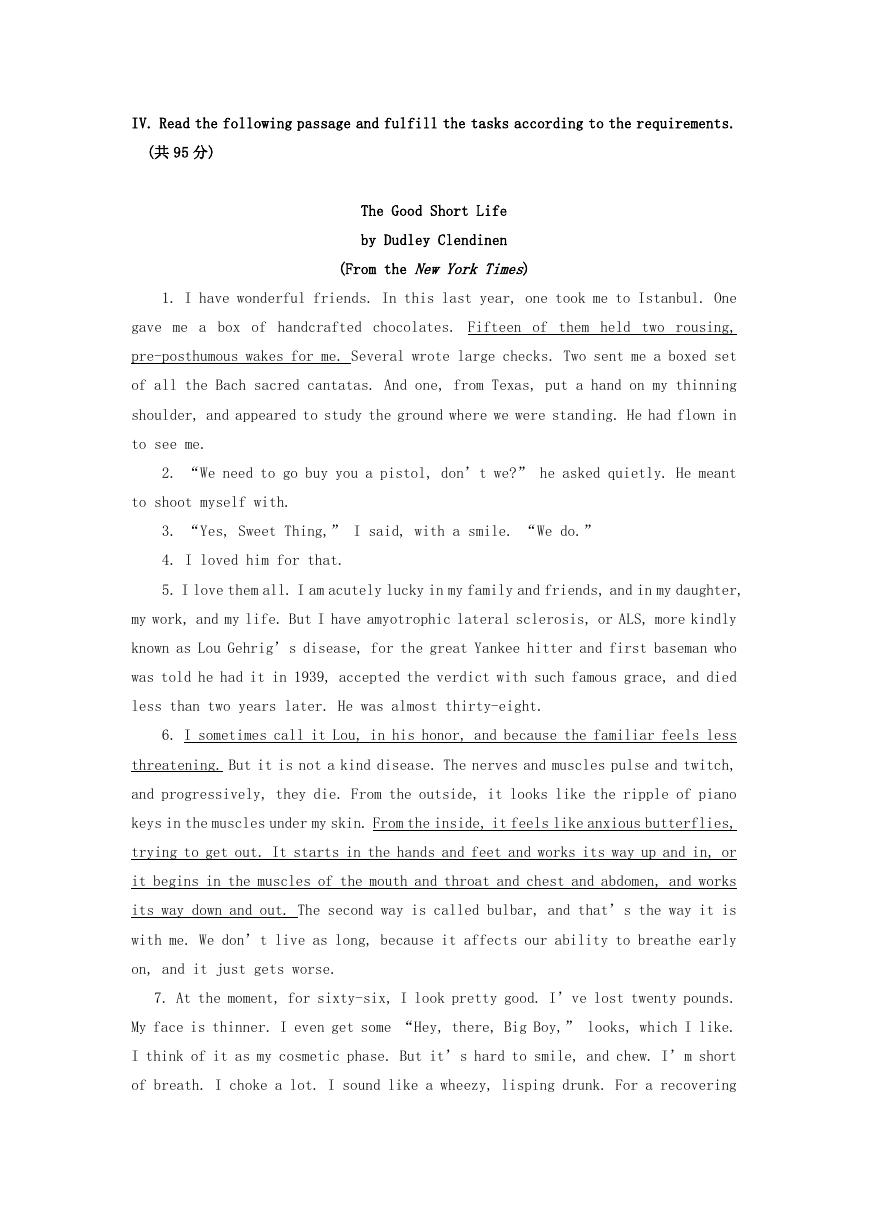
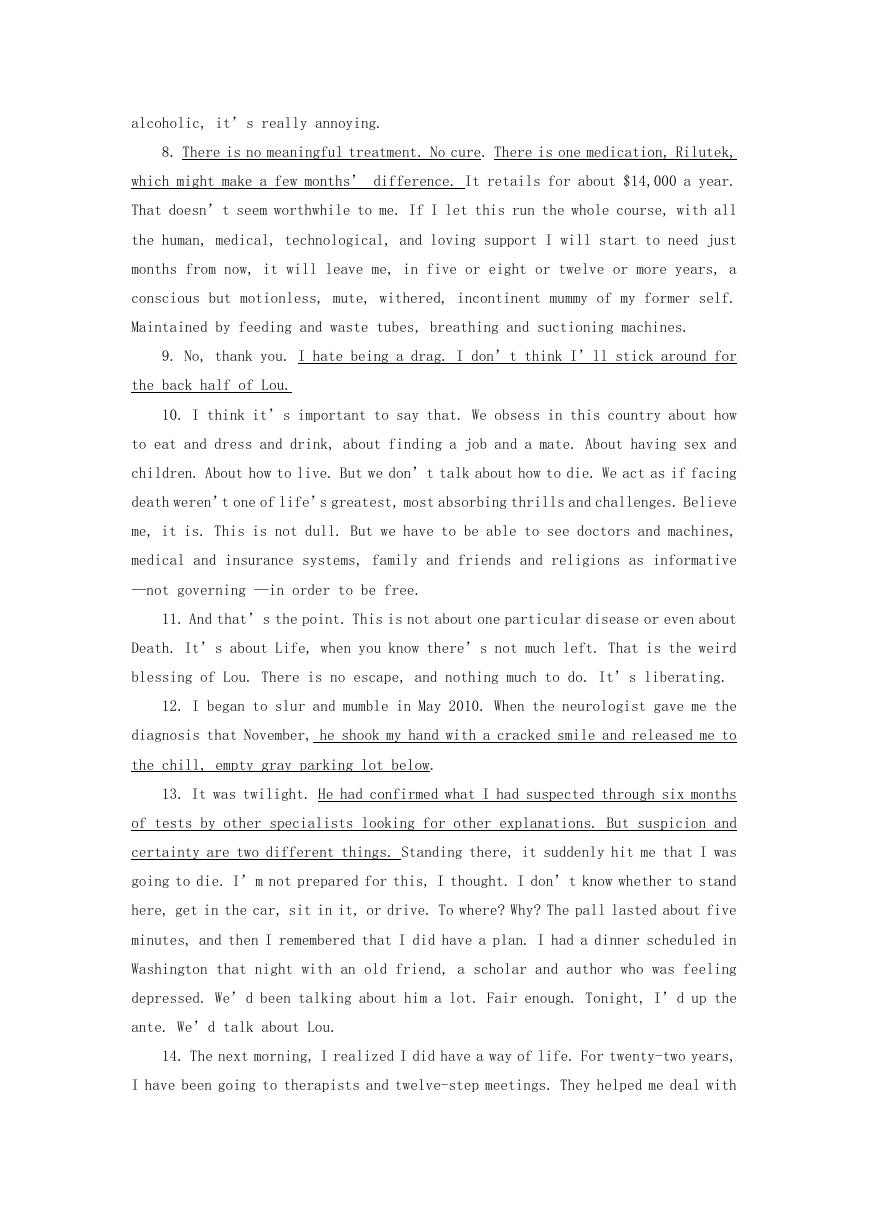









 2023年江西萍乡中考道德与法治真题及答案.doc
2023年江西萍乡中考道德与法治真题及答案.doc 2012年重庆南川中考生物真题及答案.doc
2012年重庆南川中考生物真题及答案.doc 2013年江西师范大学地理学综合及文艺理论基础考研真题.doc
2013年江西师范大学地理学综合及文艺理论基础考研真题.doc 2020年四川甘孜小升初语文真题及答案I卷.doc
2020年四川甘孜小升初语文真题及答案I卷.doc 2020年注册岩土工程师专业基础考试真题及答案.doc
2020年注册岩土工程师专业基础考试真题及答案.doc 2023-2024学年福建省厦门市九年级上学期数学月考试题及答案.doc
2023-2024学年福建省厦门市九年级上学期数学月考试题及答案.doc 2021-2022学年辽宁省沈阳市大东区九年级上学期语文期末试题及答案.doc
2021-2022学年辽宁省沈阳市大东区九年级上学期语文期末试题及答案.doc 2022-2023学年北京东城区初三第一学期物理期末试卷及答案.doc
2022-2023学年北京东城区初三第一学期物理期末试卷及答案.doc 2018上半年江西教师资格初中地理学科知识与教学能力真题及答案.doc
2018上半年江西教师资格初中地理学科知识与教学能力真题及答案.doc 2012年河北国家公务员申论考试真题及答案-省级.doc
2012年河北国家公务员申论考试真题及答案-省级.doc 2020-2021学年江苏省扬州市江都区邵樊片九年级上学期数学第一次质量检测试题及答案.doc
2020-2021学年江苏省扬州市江都区邵樊片九年级上学期数学第一次质量检测试题及答案.doc 2022下半年黑龙江教师资格证中学综合素质真题及答案.doc
2022下半年黑龙江教师资格证中学综合素质真题及答案.doc